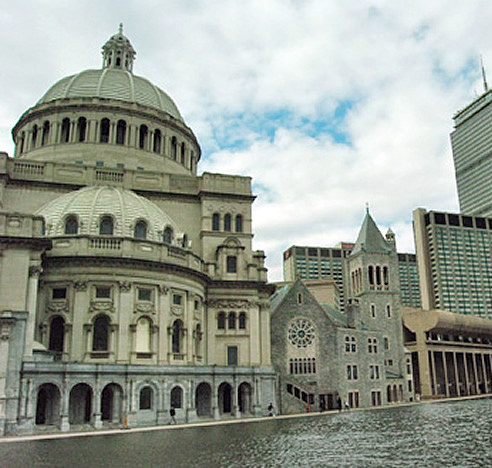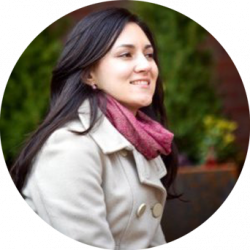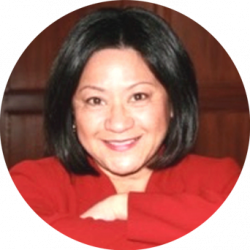By Emily Turner, Bulletin Staff

Christian Science Center in Boston

‘If you’re not factoring the religious beliefs into your coverage, you’ve left out an important dimension of how people are motivated.’
–Abe McLaughlin, Director, Content Strategy Group
Christian Science Monitor
Modern etiquette suggests avoiding the topics of politics, money or religion in conversation. In the news, however, people’s political beliefs and companies’ finances are dutifully discussed by reporters. But what about someone’s religion, which might influence the core of his or her beliefs and actions?
Faith plays a significant role in people’s lives. More than eight in 10 people worldwide identify with a religious group, according to the Pew Research Center.
While nearly the entire global population identifies with a religion, relatively few reporters focus on religion as their beat. Although news organizations don’t ignore coverage of religion, it is not typically a topic with its own section in newspapers or online.
“If there even is a religion section, it’s often fluff. It’s inspirational. It’s not hard news,” said Joshua Eaton, a Boston-based independent journalist who covers religion and society, human rights and national security for news organizations, including The Washington Post, The Boston Globe, and The Christian Science Monitor.
He said religion coverage often comes by way of opinion pieces.
One such opinion columnist is Suzette Standring. Her columns on spirituality appear in GateHouse Media-owned newspapers, and she has been contributing to The Patriot Ledger of Quincy, Mass., since 2003, writing features and news stories about religion.
“As a religion columnist, my aim is to have the reader view faith — no matter what religion — as a positive force in life. And let’s face it, many might assume religion is divisive or exclusive,” Standring said. “For example, I don’t bother with things like creationism versus evolution since I consider the subject to be trite and dreary.”
Standring said the reason it’s hard to find good stories and in-depth reporting on religion is that the aim is often for too narrow a demographic. When a story preaches toward one religion, it becomes exclusive for a specific audience, she said.
“It’s hard for people to get into that,” she said.
Melanie Frageorgia, a part-time correspondent for The Sun Chronicle of Attleboro, Mass., thinks that her religion beat is uncommon.
“It seems relatively unique to the Chronicle that they have an emphasis on religion. With most newspapers, there’s not even that much,” she said.
Despite religion having a significant role in many people’s lives, news that covers religion is more often about the shock value, Frageorgia said.
Her stories for the Sun Chronicle include profiles of religious leaders in 11 communities, in which she aims to tell an individual’s story, one that doesn’t necessarily anchor around a religion.
As with the Sun Chronicle, the Christian Science Monitor, based in Boston, does not have a full-time religion reporter. Abe McLaughlin, director of the Monitor’s content strategy group, said the global news organization does, however, include a daily Christian Science perspective piece.
“It’s our one thing that’s related to Christian Science every day,” McLaughlin said.
Despite the organization being owned by the Christian Science religion’s publishing society, it does not proselytize or deeply cover the religion, McLaughlin said.
The Monitor does not commit to covering religion on a daily basis, but McLaughlin said religion reporting is an important element in the Monitor’s news coverage.
“It’s something we see as a major current of global thought,” he said.
As a nonsecular niche publication, The Jewish Advocate of Boston covers one religion as the basis of all of its reporting.
Alexandra Lapkin, community editor for the Jewish Advocate, finds that reporting for a Jewish community allows her to cover a wide variety of topics because they’re connected not just by their faith.
“They’re a people,” she said. “Like me, for instance. I grew up in Ukraine. My family never celebrated Jewish holidays, and there were no synagogues in the town. So I didn’t have experience in Judaism. But I do have a lot of identity from being Jewish.”
Lapkin does not assume that the audience she writes for are experts in Judaism either.
“I don’t have the expertise to go into some religious topics. But I’ll always explain what something means,” she said.
For example, she recalled a story she wrote about high school students who refurbished a Geniza – a storage space where old Hebrew-language books are kept.
“These books can’t just be thrown out,” she said. “It must be a ceremonial burial.”
She had not previously heard of a Geniza, but described the significance and process for discarding the old books in her story.
A lack of religious expertise might, in fact, be what is missing from reporting beyond the fluff or shock-value of religious news today.
McLaughlin of the Christian Science Monitor said a good example of a religion story was “What ISIS Really Wants,” in The Atlantic.
“They did a nice piece about what ISIS believes. That was smart. ISIS more often gets coverage about its social media, as a political player in the Middle East, or for its role in war and terrorism,” McLaughlin said.
The Sun Chronicle’s Frageorgia thinks that the opportunity to report on religious beliefs is huge, especially for readers, to get interested in more than just the news of violence for groups such as ISIS.
“Understanding what makes them tick is something that can be done for any religion to help people understand what’s going on,” Frageorgia said.
The coverage of Islamic terrorism in general has not been good, independent journalist Eaton said.
“There hasn’t been a nuanced understanding of what religion is, the history, or how the religious culture and identity fit together,” he said.
Where Eaton thinks that there is a lack of nuanced understanding, GateHouse Media’s Standring thinks that the lack of strong religion reporting is a result of newspapers being afraid of driving away readers.
“Newspapers are scared to alienate any readers, and they’re afraid. But they’re missing the boat on a huge demographic,” she said. “I noticed that when a newspaper writes about religion in an eye-opening way, I feel there are tons of people out there that respond to it.”
McLaughlin thinks that, to tell a better, more balanced story, people’s religious beliefs should just become part of good reporting.
“If you’re not factoring the religious beliefs into your coverage, you’ve left out an important dimension of how people are motivated,” he said.

‘If there even is a religion section, it’s often fluff. It’s inspirational. It’s not hard news.’
–Joshua Eaton,
Boston-based independent journalist
‘It seems relatively unique to the Chronicle that they have an emphasis on religion. With most newspapers, there’s not even that much.’
–Melanie Frageorgia, Part-time correspondent
The Sun Chronicle, Attleboro, Mass.


‘Newspapers are scared to alienate any readers, and they’re afraid. But they’re missing the boat on a huge demographic. I noticed that when a newspaper writes about religion in an eye-opening way, I feel that there are tons of people out there that respond to it.’
–Suzette Standring,
Spirituality Columnist
GateHouse Media newspapers
